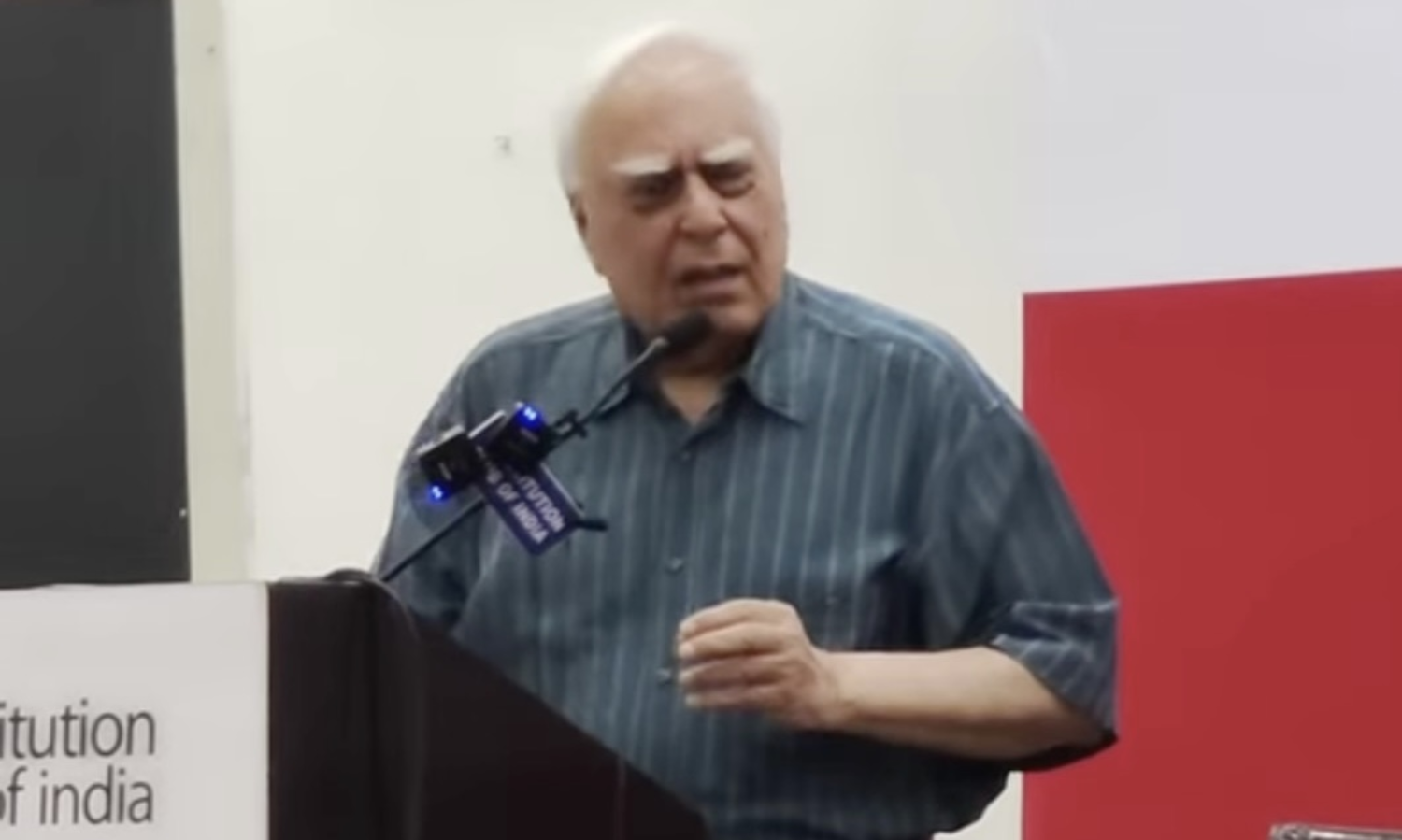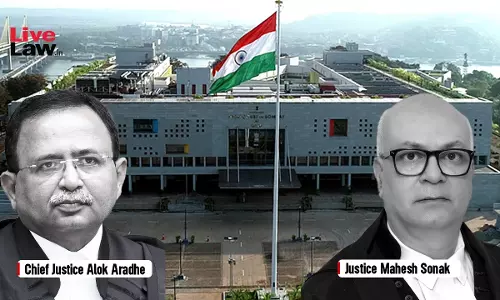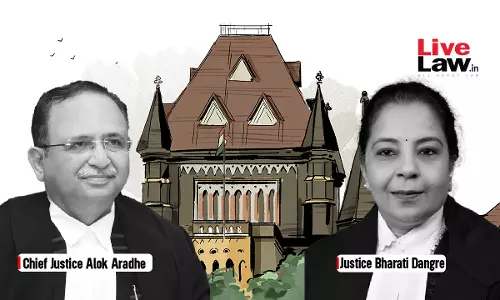
Expressing anguish at some recent judgments of the Supreme Court, Senior Advocate Kapil Sibal said that he has no hope left in the institution.The senior lawyer was speaking at the People's Tribunal which was organized on the 6th of August 2022 at New Delhi on the "Judicial Rollback of Civil Liberties" by the Campaign for Judicial Accountability and Reforms (CJAR), People's Union for...
Expressing anguish at some recent judgments of the Supreme Court, Senior Advocate Kapil Sibal said that he has no hope left in the institution.
The senior lawyer was speaking at the People's Tribunal which was organized on the 6th of August 2022 at New Delhi on the "Judicial Rollback of Civil Liberties" by the Campaign for Judicial Accountability and Reforms (CJAR), People's Union for Civil Liberties (PUCL) and the National Alliance of People's movements (NAPM). The focus of the Tribunal was on the 2022 Supreme Court Judgments on the Gujarat riots (2002) and Chhattisgarh massacre of adivasis (2009).
Sibal did not mince words in criticising the Supreme Court's judgment dismissing the plea of Zakia Jafri challenging the SIT's clean chit to state functionaries in Gujarat riots and also the verdict upholding the provisions of the Prevention of Money Laundering Act which give vast powers to the Enforcement Directorate. He had appeared for the petitioners in both the cases.
He started his address by stating that after practising for 50 years in the Supreme Court of India, he had no hope left in the institution. He stated that even if a landmark judgement is passed, it hardly ever changes the ground reality. In this context, he gave an example of the judgement striking down Section 377 as unconstitutional. He stated that despite many progressive judgements being passed, the ground reality remained the same. While addressing the gathering, Sr. Adv. Sibal stated that "independence is only possible when we stand up for our own rights and demand that independence".
Sibal, who had represented Zakia Jafri, the widow of Gujarat's Congress MP Ehsan Jafri, who was killed in the Gujarat riots, stated that while arguing in the court, he had only placed on record government documents and official records and no private documents. He stated that during the riots, many houses were burnt. Naturally, the intelligence agency would call the Fire Brigade to extinguish such fire. However, as per Sr. Adv. Sibal, the documentation or correspondence of the intelligence agency showed that no Fire Brigade picked up the call. He stated that it was argued that the SIT, appointed by Supreme Court did not properly inquire why the fire brigades did not pick up calls and the same meant that SIT did not do its work properly. Sibal stated that despite these submissions the Supreme Court did not do anything.
He said that the SIT had exculpated several persons solely relying on the statements given by those who were facing the accusations themselves. Though these aspects were pointed out to the Supreme Court, nothing was done. Even a student of law would know that an accused cannot be let off only the basis of his statement, he said.
As regards Teesta Setalvad, who was arrested after the dismissal of Zakia Jafri's case, Sibal said that no argument was presented before the Court with respect to her and yet the Court made adverse remarks against her which led to her arrest.
He said that politically sensitive cases are assigned to certain judges and the verdict can be predicted by everyone beforehand.
While talking about the independence of judiciary, he stated that–
"A court where judges are instituted through a process of compromise; a court where there is no system to determine which case will be presided over by which bench, where the Chief Justice of India decides which matter will be dealt with by which bench and when, that court can never be independent."
While addressing the recent PMLA judgement passed by the Supreme Court (Vijay Madanlal Choudhary v. Union of India), Sr. Adv. Sibal stated that the Enforcement Directorate had become extremely dangerous and that it had "crossed the lines of individual liberty." While criticising the approach of the Supreme Court in this judgement, he stated that the judge presiding over the case had stated that the PMLA was not a penal statute, despite the definition of "proceeds of crime" under PMLA including the word crime, which was penal in nature. He questioned the logic of Supreme Court's conclusion that ED officers are no police officers.
"How can you keep trust in the Supreme Court when it upholds such laws?", he asked.
He also spoke about Section 120B of IPC and its shortcomings. He stated that whenever someone wants to trap an innocent person, a case is made against him under Section 120B (for conspiracy). He stated that no bail is granted to such accused persons until they prove their innocence. He stated that if such a law has been upheld by the Supreme Court, nothing could be expect from such a court. He further stated that–
"You cannot have confidence in a system where laws of such nature are being upheld. (Siddique)Kappan, what is against him? He has been inside prison since 2020 and since he has been accused under Section 120B, he will not be granted bail...In this country, you are arrested first over frivolous FIRs and then the investigation starts. This is a colonial practice. Law should be such that the investigation takes place before arrest. No point of such law till the criminal law is changed...I do not want to talk like this about a Court where I have practised for 50 years but the time has come. If we don't do it who will. The reality is such that any sensitive matter which we know has a problem is placed before handful of judges."
"If you think judges always decide in accordance with law, you are mistaken", Sibal commented. He opined that "if you think you will get relief from Supreme Court you are hugely mistaken".
He said that he does not feel good criticising the Court where he has practiced for 50 years. "But the time has come to say this, if we don't say who else will say?", he said.
Video of Sibal's speech can be watched here
People's Tribunal
The Tribunal members were: Justice AP Shah (Former CJ, High Court of Delhi and former chairperson, Law Commission of India), Justice Anjana Prakash (Former Judge, Patna High Court), Justice Marlapalle (Former Judge, Bombay High Court), Professor Virginius Xaxa (Chair of the 2014 High Level Committee to Examine the Status of STs) and Dr. Syeda Hameed (Former Member of the Planning Commission).
Petitioners in the cases and others, including senior advocates from the Supreme Court, deposed before a panel of retired judges and eminent persons, on how the recent judgments rollback the constitutional protections of the people of this country and the jurisprudence on civil liberties.
Former judge Justice A.P. Shah, while giving his preliminary comments on the Chhattisgarh encounters case stated that instead of appreciating the courage of the tribals and ordering an independent inquiry, the Supreme Court penalised the tribals on an inquiry made by police, which was the accused in the case. He expressed his shock over the approach adopted by the Supreme Court in this case. He said that the occurrence of the massacre was not in dispute and even if the victim's allegations that it was the police and security forces who assaulted them was not to be believed on its face value, still the criminal jurisprudence mandates for a fair and independent investigation. He further emphasized that the Supreme Court completely overlooked the struggle through which the unfortunate adivasi victims managed to reach this court and instead of forming an SIT for investigation, it went on to impose an exemplary cost of 5 lakhs on Petitioner No. 1. He questioned what sort of criminal justice this was? Expressing disappointment, Justice Shah said that he himself had been a judge and seen many such proceedings but the tendency of denying independent investigation and imposing fine upon the petitioners was not a healthy sign.
"Instead of appreciating the courage of the tribals& ordering an in-depth inquiry, the SC penalised them on inquiry by police which was accused"
Anjana Prakash, J. (Retd.) speaking for the entire panel observed that the Supreme Court has in fact added to the injustice to victims by its two judgments. She stated that whatever be the state of affairs, it was our obligation to resort to the Supreme Court for justice and the Court does fulfill its duty in most of the cases. She stated that we do not live in a feudal setup and it was the taxpayers money that runs every institution and therefore, all the institutions are obligated to serve justice to the people. She concluded with the observation that it is not the Judges who are sacrosanct but very act of doing justice which is sacrosanct and therefore, it was the obligation of the people to continue to demand justice.




